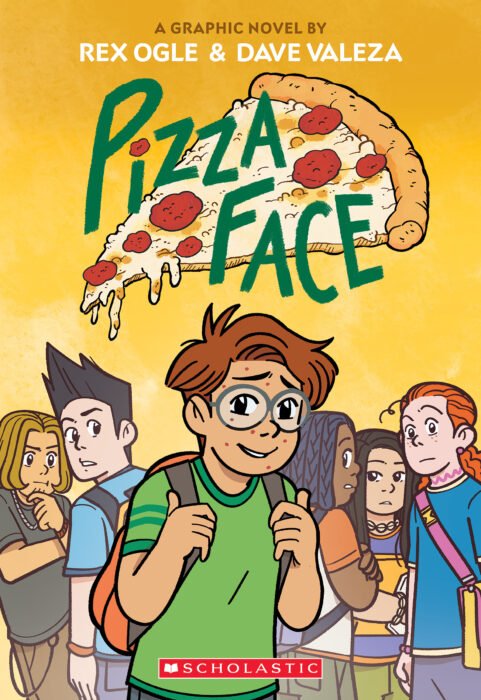When your older sister moves away for college, you can sometimes find yourself being the only voice of reason in your loud and dramatic family. For her debut novel, Melissa Mogollon turns the spotlight on all the first-generation younger siblings raised in Latinx households; specifically, the little sisters who typically sit in the corner and get ignored.
Narrated through a one-sided phone call between Luciana and her older sister Mari, Oye uncovers layers of family history through a beautifully crafted relationship between Luciana and her abuela. Mogollon expertly weaves in the realities of growing up in a Colombian household within the United States — complete with the cultural taboos, accurately depicted family dynamics, generational cycles, double identities, and much more — into this chaotically heartwarming coming-of-age story. The unique form of storytelling allows for a raw and unfiltered look into our protagonist, simultaneously offering a platform to the often-disregarded younger sibling and often-overlooked queer Latina. Readers see Luciana’s world through her hilarious, compelling, and expertly written voice as she struggles to meet girls, manage drama within her family, and work toward self-discovery in the face of an uncertain future.
The novel opens with Hurricane Irma heading straight for Miami. Everyone is concerned about the destruction it might bring, except Luciana’s eccentric abuela who refuses to evacuate. Dragged along on an impromptu road trip further inland with her mother, Luciana begins to bear the responsibility of comforting Mari and taming her mother’s pull to turn the evacuation into a cross-country vacation. However, something more fateful occurs during the storm. Her abuela receives a serious medical diagnosis, and Luciana is thrust into the role of translator, peacekeeper, caretaker, and archeologist of family secrets. As the world shifts underneath her, she attempts to hold on to the one person who understands her the most.
“Readers see Luciana’s world through her hilarious, compelling, and expertly written voice as she struggles to meet girls, manage drama within her family, and work toward self-discovery in the face of an uncertain future. ”
Oye blends a subtle critique of culture and familial love with impressive mastery. Mogollon seems to touch on almost every aspect of Latinx culture and diasporic experience you can think of. She portrays the ingrained sexism, homophobia, classism, and body shaming found within our culture, and depicts the stubborn, manipulative, and controlling tendencies of the older generations. There are broken familial ties between sisters, obsessions with appearances, judgemental abuelas, family drama, and gossiping mothers who tell everybody your business.
Luciana’s story is incredibly multifaceted. It’s about breaking generational cycles that have dug their claws deep into the lives of the women before her; stepping up as the younger sibling and taking on the responsibility that comes with being the remaining child; being the connection to the United States in an immigrant family; working through first-generation pressures, developing a voice, and uncovering past traumas. Mogollon carefully braids various strands of narrative into this riveting debut. The book asks, how do we break generational cycles of trauma and toxicity? How can we write our own stories and choose to embrace change?
Born in Colombia and raised in southern Florida, the Iowa Writers' Workshop alumna seemingly wrote this story with a deep reverence and love for the women who have raised her. At a meet-the-author event held by Amigas Latinas, Mogollon expressed that she never expected this project to turn into a published novel. Like most authors, she wrote believing no one would ever read her work but is now grateful that it could be in the hands of people who can relate to it. Despite some anxiety about the community’s reception to Oye, she acknowledged the importance of it being out in the world, especially in terms of placing queer Latinas front and center. Drawing inspiration from her own grandmother and authors like Elizabeth Acevedo, Jennine Capó Crucet, and Julián Delgado Lopera, among others, Mogollon reveals her exceptional talent for making readers laugh out loud on one page and shed tears on another.
As a little sister and first-generation daughter born into a Colombian family myself, I deeply resonated with Mogollon’s novel. It was moving to see my culture and experiences written down with such detail and accuracy — even niche aspects I thought only happened in my family. It’s almost as if Mogollon peeked into my personal life, pulling out all the lectures from my parents about having children too young, moments of my mother being an embarrassing boomer, the difficulties in communication between family members, and the constant occurrence of never being asked for input as a younger sibling. She has written into words the slightly complicated relationships between sisters, passive-aggressive mother-daughter conversations, and lovingly stubborn grandmas. The relatability of its characters, the frustrating, tear-jerking, and complex relationships, and the commitment to healing found in Oye will keep me coming back and recommending the novel to anyone who will listen.
Lorraine Olaya is a Colombian-American writer, editor, and poet born and raised in Queens, New York. She is a recent graduate from New York University with a B.A. in English and minors in Creative Writing and French. Often drawing inspiration from Latina writers such as Gloria Muñoz, Rio Cortez, Sandra Cisneros, and more, Lorraine’s work explores the experiences of the Latine diaspora, focusing on dual identity, culture, community, first-generation struggle, immigration, and familial love. Her poetry has been previously published in The Roadrunner Review, Laurel Moon Magazine, Drunken Boat Magazine, The Acentos Review, Esferas Undergraduate Journal, and elsewhere.


























